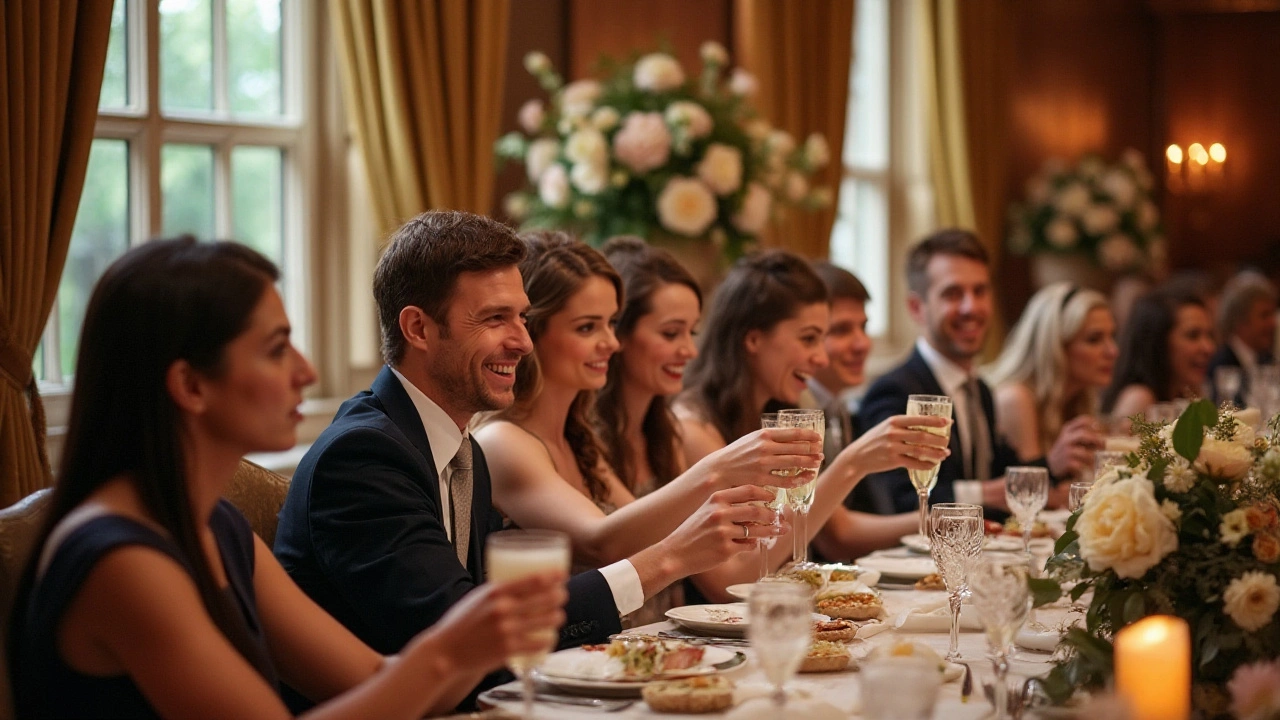Serving Meals at Your Wedding: Simple Tips for a Great Food Experience
Food is the heart of any wedding celebration. Whether you’re planning a cosy Bristol venue or a big hall, the right meal can keep guests happy and keep the day running smoothly. Below you’ll find easy‑to‑follow advice that covers everything from choosing a caterer to handling last‑minute dietary requests.
Catering Options and Serving Styles
First, decide how you want the food presented. The three most common styles are plated service, buffet, and family‑style. Plated service feels formal – guests stay seated while dishes are brought out one by one. Buffets let people pick what they like, which works well for larger crowds and mixed budgets. Family‑style is a relaxed middle ground: trays of food are placed on each table and guests serve themselves together.
Ask yourself what vibe you’re after. If you love a relaxed garden party, a buffet or family‑style setup might fit best. For a classic black‑tie affair, plated meals usually match the tone. Talk to at least three local Bristol caterers, compare sample menus, and note how each describes their service style.
Don’t forget finger foods for the cocktail hour. Small bites keep energy up and give guests something to snack on while they mingle. Think mini quiches, sausage rolls, or seasonal fruit skewers. These are cheap, simple to prepare, and work with any theme.
Planning, Budgeting and Day‑of Tips
Set a realistic food budget early. A good rule of thumb is 30‑35% of your total wedding spend. If you’re aiming for a $10,000 wedding, allocate $3,000‑$3,500 for meals and drinks. Get a detailed quote that breaks down per‑person costs, service fees, and any extra charges for set‑up or clean‑up.
Schedule a tasting session with your top caterer. This is the only time you’ll hear how the food really tastes and see how it looks on the plate. Bring a trusted friend or family member who can give honest feedback, especially about spice levels and portion sizes.
Make a clear list of dietary restrictions. Ask guests to note veg, vegan, gluten‑free, or allergy concerns on their RSVP. Share this list with your caterer at least two weeks before the wedding so they can prepare separate dishes if needed.
On the day, have a single point of contact for the kitchen – often the wedding planner or a trusted friend. They’ll confirm the final headcount, answer any last‑minute questions, and keep the timeline on track. A short run‑through with the venue staff an hour before dinner helps avoid surprises.
If you’re on a tight budget, consider a mixed menu: a simple plated dinner for the main table and a self‑service salad bar for the rest of the guests. This can lower the per‑person cost while still offering variety.
Finally, think about leftover food. Many caterers will donate excess meals to a local charity, or you can pack boxes for guests to take home. It’s a thoughtful way to reduce waste and share a bit of your celebration.
With a clear plan, a realistic budget, and open communication, serving meals at your wedding can be stress‑free and delicious. Use these tips, talk to local Bristol vendors, and enjoy the feast you’ve created for your special day.
Should You Include Catering Staff in Your Wedding Meal Plan?
Planning a wedding involves a myriad of details, from invitations to floral arrangements. One question that often arises is whether to feed the catering staff during the reception. This decision can affect your budget and the flow of your event. Here, we explore the reasons why feeding the staff might be beneficial and provide tips on how to incorporate it into your wedding plans.
View More